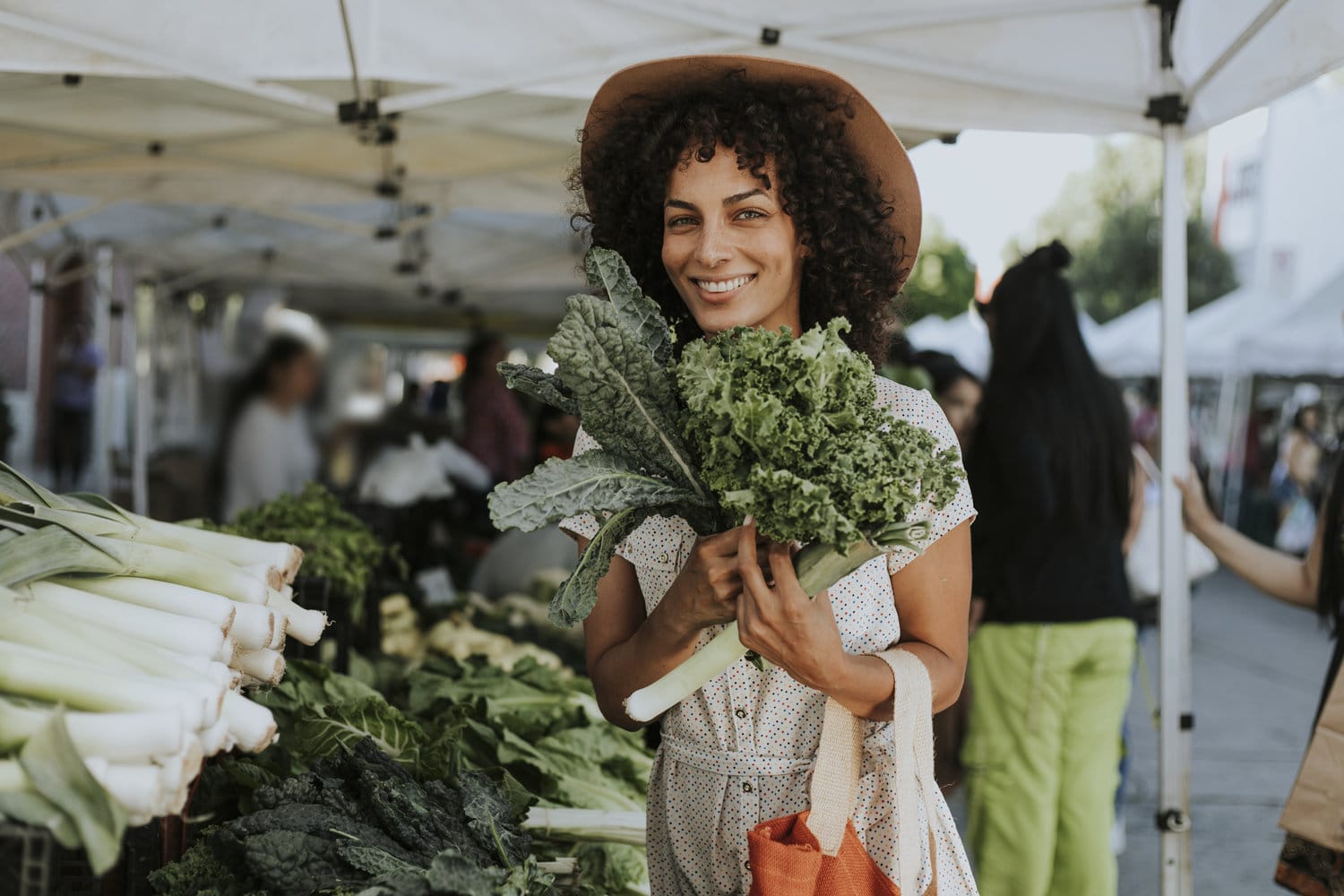“It’s easy to say, eat more whole foods, but it’s hard to do. I just don’t have enough time.”
This is what someone said to me recently at a talk I was doing.
I do understand that processed food is easier and much more convenient. That is a fact.
Eating for better health takes more time, effort, and planning than eating for convenience.
So, if you are not ready to do that, this may not be your path.
However, I do have some suggestions that will help make eating whole foods more convenient. These suggestions will also help you eat better and have less stress around food in general.
Planning

Any client of mine knows that I talk about planning all the time.
I don’t think it’s possible to over-emphasize the value of planning.
When I am on calls with my clients, before we end I always check in on what their plans are. “What are you doing this weekend?” “Do you have any guests coming?” “Any events where you don’t know what the food will be?” “Any temptations entering your line of vision soon?” “Will you be really busy at any point?”
These are all important questions to ask yourself. This should be done at least once a week. I always use the example of myself when I travel.
I am not going to be THAT person stuck at the airport having to eat airport food.
I have no desire to be stuck somewhere, starving, with no good options and end up having to eat fast food pizza.
And if you are trying to lose weight and be healthy, you definitely should not want this either. The only excuse for that happening in probably about 95% of the cases is POOR PLANNING.
Yes, stuff happens but it should be the rare occasion.
And if you have a goal, you need to be prepared.
Just like any other area of your life.
So the first step in any successful weight loss endeavor and certainly in avoiding processed food as much as possible, is to plan.
Once or ideally twice a week, sit down and plan out what you are going to eat for breakfast, lunch, and dinner for the next few days.
Take into account any super busy days, traveling, house guests, etc.
Do not leave yourself vulnerable to chance and luck.
Most situations make it HARDER, NOT EASIER, to eat well! You need to be prepared.
Scope Out Local, Easy Food Sources
Finding local food sources can be challenging.
When I first moved to the area I live in now it took me a few months to find the best (and least expensive) health food store. I was driving 30 minutes each way to get to a Whole Foods and spending way more money than I wanted to.
I also had no idea where to grab some quick, unprocessed snacks or to eat a delicious, high-quality meal at a restaurant.

But I’ve learned a few tricks for finding local foods more quickly that I will share with you.
There are a few organizations that have online resources to help you find local markets and grocery stores and local farms that deliver.
Search under Local Chapters and reach out to your local chapter for resources for pasture-raised poultry, grass-fed meat, wild-caught fish, local dairy, and organic produce. These Chapter Leaders can be a huge resource for finding local whole foods. I would ask them about restaurants and healthy to-go places as well.
Eat Wild is dedicated to helping people connect with local farms of all kinds. They have a great search function so you can find exactly what you are looking for and see how close it is to you. They also have a ton of other useful information about eating high-quality, whole foods.
This site will connect you with local farmers’ markets, CSA programs (Community Supported Agriculture), farms, and food coops.
Community Supported Agriculture (CSA)
Farms create CSAs to provide themselves with a predictable flow of income throughout the harvest season. You would buy a “share” of the harvest bounty and it is delivered to a designated location usually weekly. You typically do not get to choose what you get. It’s usually a bag of produce that includes all the food that is in abundance at the time. It’s a great way to support local farmers AND to increase the variety of food you eat in your diet and your creative culinary skills.
Food Coops
This is where a group of people get together to buy food in bulk. It can be anything from just meat or include every grocery you would buy at the store. It’s a nice way to take advantage of the benefits of buying in bulk and also a way to get to know some local people that may be like-minded with you.
Once you have scoped out a few farmers’ markets, a few health food stores and/or grocery stores that have a good selection of fresh produce and maybe some organic goods, and any local farms or farmers that deliver food you will have to check them all out.
Again, this comes down to planning. I suggest building this into your schedule on your days off, not when you are running to grab some food on your way home from work.
Take some time to compare prices and food quality. You’re probably not going to get it perfectly right in the beginning but at least it won’t take you months to find one good store.
You can also find local resources by asking people that would probably know about those kinds of things.
I would reach out to local nutritionists, integrative doctors offices, midwives and doulas, fitness centers, chambers of commerce, private schools like Montessori or Waldorf, environmental conservation groups, hiking clubs, and any other place health-conscious people hang out.
You would be surprised how many hidden gems you will find even if you have been in the area a long time. While you’re at it, you may want to ask around about restaurants and places that sell quick prepared foods.
If you can’t find things locally then definitely go online.
There are some great resources for things like kosher grass-fed beef, wild-caught fish, truly raw nuts, biodynamic grains, and that sort of thing.
For organic dried goods like nuts, seeds, whole grains, oils, dressings, etc.
Vital Choice
For wild-caught seafood and fish from Alaska (they also have some great canned sardines form Portugal)
For kosher grass-fed meat, pasture-raised poultry, and wild-caught salmon
For truly grass-fed meat, organic, free-range poultry, and heritage-breed pork
Besides finding good sources for stocking your kitchen it is also important to find local resources for quick meals and snacks as well as a few restaurants that will meet your needs.
Whenever I travel I have to do this too (and I suggest you do so as well when you travel).
I simply start searching on google things like “farm-to-table restaurants near me” OR “organic restaurants near me” OR “health food stores near me” OR “organic vegetable juice near me” OR “salad restaurants near me” and that sort of thing.
Sometimes you have to be creative and often you have to be persistent. Where there’s a will, there’s a way.
Identify Less Processed Versions of Foods
Sometimes we have foods that we are just not willing to give up.
I get it.

I’m not saying I’m condoning eating a ton of processed junk food but let’s face it, in this world we live in, it’s hard to say you’re never going to eat any highly processed foods.
This again comes down to planning. Look in your kitchen and figure out which foods you often buy that are highly processed. This can be the basics like ketchup and jam, the regulars like bread, and treats like cookies and chips.
First of all, I always do suggest buying organic when it comes to processed food.
If you have a local farmer that is truly using organic practices but is not certified that is usually acceptable and often preferred over buying certified organic food from far, far away.
But for things like mass-produced ketchup and chips, if you don’t have a local source I would always go the organic route.
They usually will be a step above the regular stuff.
For example, an organic product may have less sugar, better quality fats, less salt, less ingredients overall, and even cleaner containers such as BPA-free.
This is not to say that if it’s organic it’s healthy.
I see plenty of people in health food stores with their carts filled to the brim with fancy boxes and cans.
The foods are labeled as healthy but they are still processed.
This is not what I am suggesting.
Rather your cart should be mostly foods that look just like they did when they were growing: ie: fruits and vegetables.
That should be the bulk of food in your cart and on your plate. Then you may also see some seeds and/or nuts, some meat and fish, and some beans and/or whole grains in a bag (not processed and with a short list of ingredients).
But if you feel you must have a cookie sometimes or some chips, choose organic versions with the least amount of ingredients.
Stay away from trans-fats, hydrogenated oils, added sugars, natural flavors and coloring, artificial flavors and coloring, preservatives, and really anything else that you don’t recognize.
These days there are tons of healthier options for processed foods. Even just buying organic ketchup with the lowest number of grams of sugar can make a difference.
It will take a bit of leg-work and time to find the less-processed versions of your favorite treats.
And keep in mind that if your list of highly processed foods is long, maybe you need to rethink things and shorten that list before you go out finding supposedly healthier versions of those foods.
All of this may seem like a major pain in the butt!
But you are absolutely worth the effort!
Imagine feeling more energized, having more vitality, and being at your most productive!!
Whole foods can help you be that way!
If you want more of this type of information and you are looking to lose weight or improve your blood sugar control, I highly recommend you check out my course Food Boss.
